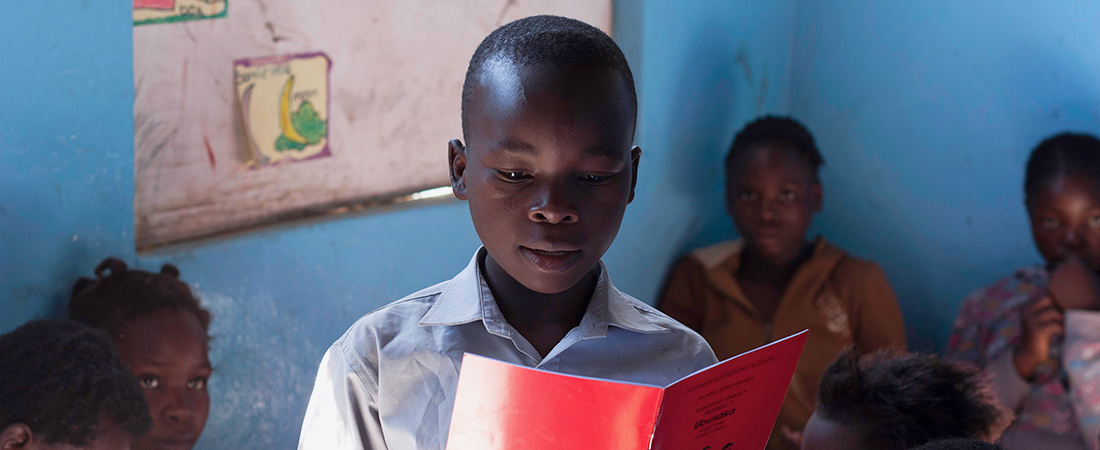
Literacy and mathematical programs deliver the promise of education to millions of children around the world.
We create and test learning experiences that lead to deep understanding and an ability to act thoughtfully upon the world. Whether in settings that are rich or poor in resources, we are committed to building sound foundations in literacy, science, and mathematics.
Through engaging classroom curricula, media instruction, digital tools, and teacher training, we equip children and young adults with the fundamentals they need to be successful—in school and in life.
Related Content
A Second Chance at School in Mali
In Mali, accelerated education is helping thousands of children get back to school.
Is Social Media Harmful to Students with Disabilities?
A new report on social media finds some benefits, but higher cyberbullying rates.
3 Ways to Stop the Summer Slide
Want to help kids keep learning this summer? Here are some tips for parents and caregivers.
How Schools Can Support Students Affected by Opioids
The trauma children experience as a result of opioid misuse at home can affect how they do in school—but schools can help.
3 Ways Schools Can Support Children Affected by the Opioid Crisis
Schools are uniquely positioned to address the needs of children exposed to trauma, says Shai Fuxman.
Accelerating Education in Liberia
An estimated 300,000 Liberian children do not attend school. What’s being done to provide more access to education?
Projects
Resources
Here are a few of our resources on behavioral, physical, and mental health. To see more, visit our Resources section.
This toolkit helps build the capacity of teachers and leaders to use evidence-based practices, universal design for learning (UDL) principles, and technology to improve student engagement, motivati
In this action memo, we consider proposals for more effective donor investment in school health and nutrition.
Zoom In is a free, research-based online tool that helps students learn U.S. history while strengthening their literacy skills.
EDC’s basic education programs in low-resource contexts support the development of learners who can use language to explain and analyze the world around them and who have the foundational skills to think critically and solve the range of problems they will encounter in school and life.
Instructional strategies that facilitate access to language and participation in mathematical discussions are essential to promote equitable learning opportunities for multilingual learners in the
SSTEP is a three-year program of the Republic of South Sudan Ministry of General Education and Instruction, supported by the U.S. Agency for International Development (USAID).
This study examines the role of college-based transition services in the self-determination of youth with intellectual disabilities and autism.
This is the executive summary of a report that describes the proceedings from the first State-Federal STEM Summit, held June 2018 in Washington, D.C.
This white paper provides an overview of dosage, the data necessary to study dosage, and related key considerations.
This report describes how the Regional Education Laboratory Northeast & Islands at EDC supported the formulation and implementation of a new data- and research-based discipline policy in one mi